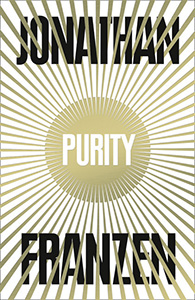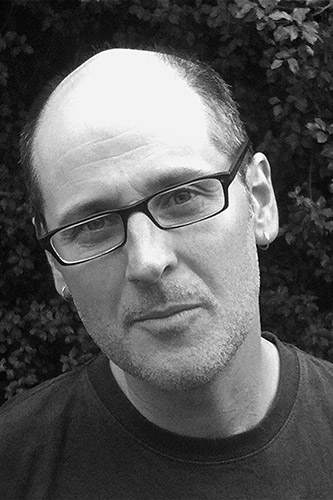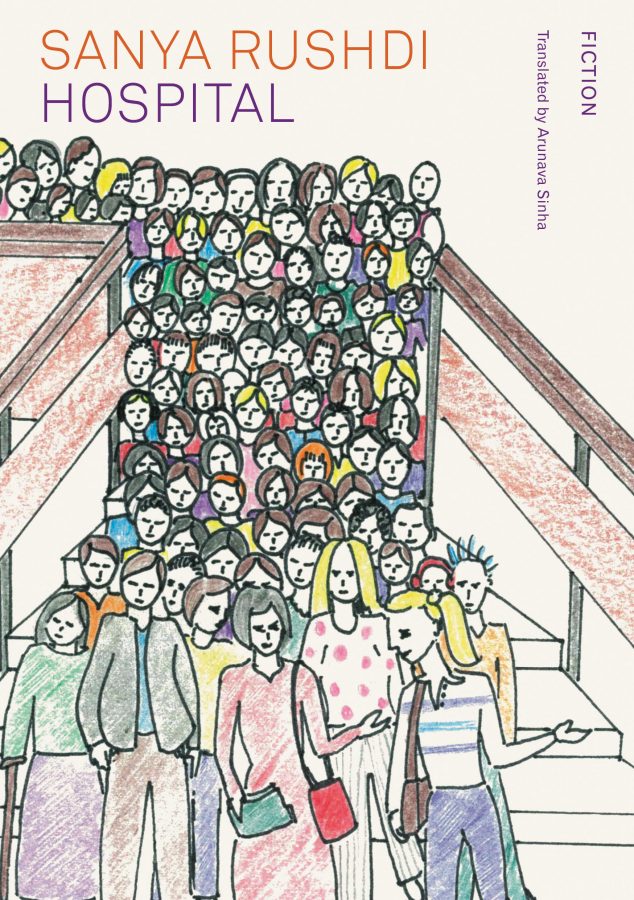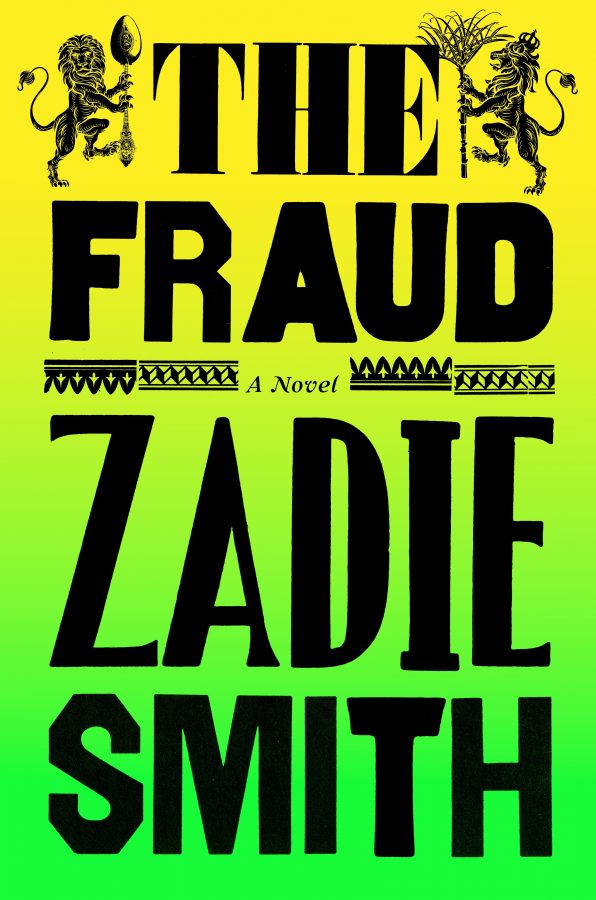I think it is fair to say that Jonathan Franzen has become, for a variety of reasons, someone who divides opinion. There is, however, one observation that can be made about him that will perhaps invite universal assent: he is not cool. Even he concurs. His collection of autobiographical essays The Discomfort Zone (2006) revealed, to the surprise of no one, that the young Franzen was an appalling nerd. Peanuts comics, stuffed toy collection, amateur science, straight A’s, spelling bees, Christian Fellowship, birdwatching, J. R. R. Tolkien, ugly shirts — the whole deal. Apparently he had a dreadful time losing his virginity, which he attributes to an extraordinary run of bad luck.
Franzen adopts an ironic view of his younger self in The Discomfort Zone, as he does in a number of other essays. Yet I doubt anyone could read through his non-fiction and not come away with the overriding impression that he takes both his vocation as a novelist and his own critical opinions very seriously indeed. There are few writers who have been as earnest and forthright in lamenting the fate of the novel in a technological age, few who have been as explicit in defining their art in opposition to all that is shallow and inane about contemporary culture. And it is hard to think of any other writer who has approached these issues in such personal terms. One of the distinctive features of Franzen’s excursions into cultural criticism in books such as How to be Alone (2002) and The Kraus Project (2013) is the extent to which his experiences, feelings and self-reflections are presented as intrinsic to his understanding of broad cultural questions.
This subjective mode of thinking, this habit of taking the personal measure of large and seemingly impersonal forces, is the source of many of the intellectual and dramatic conflicts, and many of the ironies, in Franzen’s fiction and non-fiction alike. And it generates what is perhaps his work’s most telling ambivalence. He has observed on several occasions that in his twenties he became an ‘extremely angry person’ whose unhappiness and frustration was entwined with his rage at a political economy he regarded as ‘a vast cabal whose specific aim was to thwart my artistic ambitions, exterminate all that I found lovely in civilisation, and also rape and murder the planet in the process’. He has stressed that he is no longer an angry person, that he has matured and mellowed. ‘The more I wrote novels,’ he reflects in The Kraus Project, ‘the less I trusted my own righteousness.’ But he has continued to present his political opposition to ‘techno-consumerism’ and his literary ideals as conjoined principles. His recent criticisms of digital culture, many of which are woven into the fabric of his latest novel Purity, are merely the latest manifestation of a longstanding opinion that as a writer he has a responsibility to resist what he has referred to as ‘the nexus of technology, media, and capital’.
Franzen’s oppositional stance has played itself out in some curious ways, and not only because his elevation to the status of celebrity author, following the success of his third novel The Corrections (2001), has cast an ironic light on some of his complaints about our vapid culture’s marginalisation of ‘serious fiction’. Many of his stated views on literature were articulated in the context of a generational debate about the purpose and direction of the post-postmodern novel. The arguments, which simmered throughout the 1990s and early 2000s, tended to focus on formal and aesthetic questions, but were also concerned with the question of how writers might address and adapt to what Franzen has recently characterised as our ‘media-saturated, technology-crazed, apocalypse-haunted historical moment’. These were subjects on which he held strong opinions. His ambition as a young man, he writes in The Kraus Project, was no less than ‘to save the American novel — from social one-dimensionality, from critical preoccupation with the prison-house of language, from the off-putting avant-gardism of Pynchon and his kind’.
In hindsight, the most striking thing about Franzen’s contributions to this debate — notably, a rambling essay he published in Harper’s in 1996 and subsequently collected in How to be Alone under the title ‘Why Bother?’ — is not that he should interpret its key issues in the light of his personal ambitions and creative struggles. Nor is it unusual that his dedication to writing accessible character-driven novels with prominent political themes should coincide with a philosophical allegiance to what is, in essence, a version of traditional literary humanism. What is truly remarkable is the frequency with which his attempts to stake out his intellectual and artistic integrity on these grounds have resulted in a gunshot wound to the foot.
Statements such as ‘I feel like I’m solidly in the high-art literary tradition’ (his explanation for refusing to appear on the Oprah Winfrey Show in 2002) and ‘I understand my life in the context of Raskolnikov and Quentin Compson, not David Letterman or Jerry Seinfeld’ (from a 1995 essay worrying about the pernicious influence of television) have an almost guileless pomposity about them. They express a naive faith in the cultural potency of their frank conflations of high-mindedness and self-regard, which goes some way toward explaining how it is that Franzen, whose work is neither humourless nor unreflective (and who has reconciled with Oprah), has fixed himself in many people’s minds as a po-faced literary elitist and a grouchy technophobe. It is not as if rapacious consumerism and the many manifestations of gratuitous nitwittery on social media are beyond criticism. But Franzen has a taste for the intellectual catnip of interpreting the general crappiness of the present moment as a symptom of cultural decline, which combines with his oppositional literary humanism in a way that tends to produce lofty-sounding declarations of principled rejection.
This is why, I think, Franzen the cultural critic so often seems like the gunslinger who kicks open the saloon doors, forgetting that they will swing back on their hinges and whack him in the nose. He is no dialectician. He likes his criticisms sweeping, whole-culture-sized. As a result, his rhetoric has a tendency to run away with itself. Here, for example, is a passage from How to be Alone:
Reticence, meanwhile, has become an obsolete virtue. People now readily name their diseases, rents, antidepressants. Sexual histories get spilled on first dates. Birkenstocks and cutoffs infiltrate the office on casual Fridays, telecommuting puts the boardroom in the bedroom, ‘softer’ modern office design puts the bedroom in the boardroom, salespeople unilaterally address customers by their first name, waiters won’t bring me my food until I’ve established a personal relationship with them …
He could go on — and in fact he does.
Wearing Birkenstocks and cutoffs on casual Friday is obviously barbaric. But it is hard to know what Franzen expects us to make of this weird litany of complaint, given that the essay genuinely wants to suggest that reticence is a virtue. The passage clearly has a rhetorical quality, yet the effect is to displace its notionally serious argument with the image of a disgruntled old coot railing indiscriminately at the world while he shakes his Zimmer frame at passing skateboarders.
*
Franzen would appear to be incorrigible when it comes to this kind of wholesale disapproval. The Kraus Project is the odd one out among his books, but perhaps the most revealing on this point. It consists of his annotated translations of several essays by the irascible Austrian satirist Karl Kraus (1874-1936), whom Franzen counts as a formative influence. He explicitly reads his own experiences and opinions into those of his subject, to the extent that his footnotes — which incorporate, among other things, accounts of his time as an exchange student in Germany and his unhappy first marriage — regularly overwhelm Kraus’s text. These footnotes are supplied ‘to give an account of the angry young person I was when I first read him, and to suggest some ways in which his work might matter to the world we live in now’.
As in How to be Alone and The Discomfort Zone, Franzen looks back at his younger self to emphasise that he has changed. ‘Anger descended on me so near in time to when I fell in love with Kraus’s writing,’ he observes, ‘that the two occurrences are practically indistinguishable.’ He goes on to explain how he eventually lost his taste for Kraus’s ‘never-apologising moral certitude’. But The Kraus Project also makes it clear that Franzen has not renounced his belief in the essential rightness of Kraus’s criticisms of the mass media of his day:
his critique applies, if anything, even better to contemporary techno-consumerism. For Kraus, the infernal thing about newspapers was their fraudulent coupling of Enlightenment ideals with a relentless and ingenious pursuit of profit and power. With techno-consumerism, a humanist rhetoric of ‘empowerment’ and ‘creativity’ and ‘freedom’ and ‘connection’ and ‘democracy’ abets the frank monopolism of the techno-titans; the new infernal machine seems increasingly to obey nothing but its own developmental logic, and it’s far more enslavingly addictive, and far more pandering to people’s worst impulses, than newspapers ever were.
For Franzen, ‘the most impressive thing about Kraus as a thinker may be how early and clearly he recognized the divergence of technological progress from moral and spiritual progress’. And this is a key point. Angry or not, Franzen continues to see the problems of contemporary society in structural terms, but cannot help but regard the persistence of these problems as a kind of collective failure of character. This is at the heart of his dislike of digital culture. We are being seduced and distracted, he argues, by a meretricious hipsterism:
One of the worst things about the Internet is that it tempts everyone to be a sophisticate – to take positions on what is hip and to consider, under pain of being unhip, the positions that everyone else is taking …
We can’t face the real problems … What we can all agree to do instead is to deliver ourselves to the cool new media and technologies, to Steve Jobs and Mark Zuckerberg and Jeff Bezos, and let them profit at our expense.
This is perhaps the most slippery aspect of Franzen’s thinking. The grounds on which he argues and his chosen emphasis are based on more than a disinterested appraisal of the present moment. His cultural criticisms, which are apt to cast the infernal machine of techno-consumerism as monolithic, have their foundations in a principled resistance that is the expression of an individualism, which is also to say egotism. His diagnosis of society’s moral and spiritual malaise is entangled, in a fundamental way, with his self-image as a writer and his idiosyncratic sense of rectitude. This, too, The Kraus Project makes clear in its reading of Kraus’s anger as a form of rebellion against his privileged upbringing, against the fact that he had little to complain about on a personal level. Franzen, with his younger self in mind, interprets Kraus’s rage at his society as a means of self-definition – an artist’s ‘violent shrugging-off of categories that threatened his individual integrity’. The distinctive quality of this element of resistance as it manifests itself in Franzen’s essays is that it draws out the conflicted nature of his individualism by revealing an underlying belief in order and propriety and cultural value that is more or less indistinguishable from a very personal sense of disapproval.
The passage quoted above – the one in which Franzen decries Birkenstocks and overly-familiar salespeople – is taken from an early-ish essay titled ‘Imperial Bedroom’, the subject of which is privacy. More specifically, it considers the drastic reconfiguring of the distinction between the public and private spheres that is one of the symptoms of our digital age (and which constitutes a significant theme in Purity). And Franzen’s argument, which reappears in The Kraus Project, is revealingly counter-intuitive. He begins with the observation that when the revelations about Bill Clinton and Monica Lewinsky were published in the newspapers, his feeling was that
my own privacy – not Clinton’s, not Lewinsky’s – was being violated … What I felt I felt personally. I was being intruded upon.
He makes the same observation in The Kraus Project with reference to the tabloid nonsense that dominates AOL’s news feed. Citing a teaser for story that concludes with the ridiculous line ‘What he did with broccoli is vile’, Franzen observes:
What is vile is for AOL to use the word ‘vile’ to invade my privacy by presuming that I would use the same word.
A few pages later he reiterates the point about his privacy being invaded by this kind of prurient silliness.
For those puzzled as to how a piece of dopey clickbait constitutes a breach of privacy (as distinct from being a standard-issue insult to the intelligence), Franzen provides an explanation in ‘Imperial Bedroom’. He argues, against the common wisdom, that modern communications technology is not a threat to our individual privacy – in fact, he is untroubled about the prospect of governments and corporations collecting personal data, and criticises fellow-novelist Richard Powers for suggesting that this might be an important issue. The more serious problem, Franzen proposes, is the threat to the public sphere, which he sees as being degraded by vulgar and inappropriate forms of self-exposure and stupidity. He insists that his disapproval is not moralistic. He doesn’t care what people get up to; he doesn’t care that there has been hanky-panky in the Oval Office; he just wants his society to be mature enough to ignore that kind of thing. Yet his argument does have a moralistic inflection, which colours his vocabulary – the crass public forum of television, he proposes at one point, lacks the appropriate sense of ‘shame’ without which ‘there can be no distinction between public and private’. And this is the point at which Franzen’s individualism reveals its contradictions. It is not difficult to detect behind his disapproval a nostalgia for an orderly public sphere that has never really existed outside of a totalitarian regime, an anxiety about its unregulated nature that expresses a latent desire to impose a sense of certainty. And that is exactly where Franzen’s argument in ‘Imperial Bedroom’ leads him. His ideal public sphere he defines as ‘a place where every citizen is welcome to be present and where the purely private is excluded’; it is embodied in institutions such as the courts and the workplace, where ‘codes of dress and behaviour are routinely enforced, personal disclosures are penalized, and formality is still the rule’ (emphasis added).
*
Franzen the novelist is a different proposition to Franzen the cultural critic, but they are unmistakably the same writer. It is possible to identify many instances of him placing versions of his declared opinions (or former opinions) into the mouths of his characters, where the fictional contexts naturally bestow additional layers of implication. When Chip Lambert complains in The Corrections that ‘the structure of the entire culture is flawed … I am personally losing the battle with a commercialized, medicalized, totalitarian modernity right this instant’, there are several ironies at work. On one level, Chip is speaking ironically, in a spirit of helpless self-awareness, about the mess he has made of his life. On another level, Franzen is satirising his own acknowledged tendencies, as he would also appear to be doing in Freedom (2010) when he has Walter Berglund denounce the technological fragmentation of modern existence in sweeping terms:
Because it’s the same problem everywhere. It’s like the internet, or cable TV – there’s never any center, there’s no communal agreement, there’s just a trillion little bits of distracting noise. We can never sit down and have any kind of sustained conversation, it’s all just cheap trash and shitty development. All the real things, the authentic things, the honest things are dying off. Intellectually and culturally, we just bounce around like random billiard balls, reacting to the latest random stimuli.
Walter is an example of a key Franzenian archetype, one that is often the object of satire in his novels – the frustrated idealist. Yet the overarching irony at such moments of impotent denunciation is that Franzen’s novels agree that the structure of the entire culture is flawed. The idea is encoded into their premises and plots. In The Corrections, the travails of the Berglund family are set against the backdrop of a commercialised, medicalised society that is being ravaged by unregulated capital. The characters in Freedom have their lives similarly deformed by the military-industrial complex and environmentally destructive corporatism. Purity is a departure for Franzen in several respects, but in this at least it conforms to the basic template of his earlier novels. The sinister forces of cultural oppression in this instance are the Internet, the lurking menace of nuclear weapons, and industrial-scale agribusiness.
The novel’s central character is a young woman named Purity ‘Pip’ Tyler, who has been raised by her reclusive and very peculiar mother Anabel. As a result of her sheltered upbringing, she looks at the world ‘with eyes unclouded by preconception’. Poor unhip Pip has never even heard of 30 Rock and at one point responds to some surprising news by exclaiming ‘Criminy’. The novel’s opening section depicts her fresh out of college, burdened with an enormous student debt, working a dreary low-paying job and sharing a house in Oakland with a collection of damaged oddballs. In a farcical early scene, she brings home an attractive young man and smuggles him into her bedroom, but ends up trapped in the kitchen talking to a handsome German woman named Annagret, who in the course of their conversation recruits her to come and work for the ‘famous Internet outlaw’ Andreas Wolf – a Julian Assange-like figure who runs a website from an outpost in Bolivia, ‘owing to various European and American warrants for his arrest on hacking and spying charges’. Annagret’s pitch is that the ‘Sunlight Project’ is all about
honesty, truth, transparency, freedom … The fantastic thing about Andreas is that he knows the Internet is the greatest truth device ever.
It is not giving too much away to reveal that Purity goes on to suggest that these propositions are not true.
Purity is a boldly and, in certain respects, preposterously plotted novel. It proceeds through seven longish sections, symmetrically arranged, in the course of which each of the major characters occupies centre stage. The long arc of Pip’s narrative of self-discovery takes her from Andreas’s Sunlight Project to a job at the Denver Independent, a more conventional news outlet run by Tom Aberrant and his partner Leila, before returning her home to Oakland. Along the way, Pip discovers the family history her mother has concealed from her, and we are given detailed accounts of the interwoven pasts of Andreas, Tom and Anabel.
Several early reviews have noted that Pip’s name is an allusion to Dickens’s Great Expectations (1861) and have drawn the obvious comparison. (The fact that Patti Berglund spends part of Freedom reading War and Peace similarly prompted a number of excitable critics to liken Franzen to Tolstoy, which is a bit like comparing a well-executed painting of a sad clown to the works of Titian.) There are certainly some self-consciously Dickensian aspects to the plot of Purity. Pip is not a literal orphan, but she is a kind of figurative one, in a book notable for its proliferation of absent or estranged fathers, and there is a vast unclaimed inheritance lurking in the background.
But Franzen’s literary ambitions extend well beyond this element of homage. Purity is a kind of social novel, albeit a highly stylised one, in which serious political and cultural themes are combined with comic scenes, big plot twists and apparent in-jokes. In its middle sections, it swerves into a subplot about a stolen nuclear warhead, dramatises arguments about ‘the false promise of the Internet and social media as substitutes for journalism’, and introduces a memorable minor character named Charles – an unsuccessful wheelchair-bound novelist, who complains bitterly about the undue attention that is lavished upon mediocre writers named ‘Jonathan’. Yet Purity’s unifying theme, clearly announced in its title, is not ultimately social or cultural or political, but moral and psychological. Its concern with information and technology on a large scale are ultimately subordinated to its interest in the characters’ states of being, which come to be defined by their relationship to Purity (both the character and the ideal). This grounds the novel in the intimate themes of personal guilt and secrecy.
*
The novel’s most significant secret is, from the reader’s perspective, not a secret at all. It is revealed early in the book that Andreas has committed a murder. In the second section, which describes his young life in East Germany, we learn that he first met Annagret in the 1980s while working as a counsellor. The pre-fame Andreas is already something of a lothario, but the beautiful teenaged Annagret stirs something deeper in him than a mere desire to get into her pants. She reveals to him that she is being molested by her stepfather, who also happens to be a Stasi agent, and together they hatch a plan to kill him.
The dramatic murder scene occurs early in the novel – as it does, not coincidentally, in Crime and Punishment (1866). This is partly because Franzen is interested in the psychological repercussions of such a drastic act. But it is also because the murder is symbolically important in several ways. Its dark shadow falls across all of Andreas’s subsequent actions. And it generates one of the book’s defining ironies, for it inadvertently sets him on the path to becoming a celebrated figure. When the Berlin Wall comes down, he takes advantage of the collapse of order to cover his tracks, joining the jubilant crowd ransacking Stasi headquarters so that he can steal an incriminating file. As he is leaving, however, he is stopped by a television news crew, to whom he proclaims:
This is a country of festering secrets and toxic lies. Only the strongest of sunlight can disinfect it.
The footage is broadcast around the world, turning Andreas into an instant celebrity. It makes him the public face of principled resistance to the totalitarian surveillance state.
That the founder of the Sunlight Project also happens to have committed a grisly murder in the dead of night is not exactly a subtle irony. But Franzen is not content to portray Andreas as a mere hypocrite. He also burdens him with some heavy psychological baggage. Andreas is a profoundly self-involved and inconsiderate character. He has a weird and conflicted relationship with his mother. His outsized egotism seems to exist in a mutually reinforcing relationship with his buried anxieties and neuroses. Like a latter-day Raskolnikov, he rationalises the act of murder, convincing himself beforehand that the violence will somehow transform him, liberate him from his hidden personal torment:
He had to kill the man he’d always been, by killing someone else … He’d heard it said … that every suicide was a proxy for a murder that the perpetrator could only symbolically commit; every suicide a murder gone awry … maybe the adage had it backward, maybe every murder was a suicide gone awry, because what he was feeling, besides an all-permeating compassion for his tormented self, was that he had to follow through with the killing to put himself out of his misery.
This perverse logic of displaced violence draws the novel into some deep and murky waters. It represents a significant, if not entirely successful, attempt by Franzen to extend the psychological range of his fiction. It cannot pass unnoticed, however, that Andreas Wolf is, in several crucial respects, a rewrite of Freedom’s Pynchon-reading rock star Richard Katz. Both characters are charismatic rebels who are lascivious, egotistical and psychologically troubled. Both are ‘cool’ famous figures who stand in hypocritical relation to their idealised public image. Both are portrayed with what one infers is a degree of authorial disapproval. The central female characters in Freedom and Purity find themselves torn between this louche archetype of coolness and conspicuously less-cool characters, who are angry and conflicted in their own ways, but are more responsible and seemingly more deserving of loyalty and respect. In Freedom, Patti Berglund has an ill-advised affair with Richard, which leads to the breakdown of her marriage to the frustrated but decent Walter. In Purity, Pip’s affections come to be divided between the ‘pure’ Andreas Wolf and the more pragmatic Tom Aberrant – rival father-figures (with a bit of a psycho-sexual twist), who also happen to represent the competing journalistic values of New and Old Media.
Richard Katz was read in some quarters as a veiled portrait of Franzen’s departed friend and sometime literary rival David Foster Wallace. The parallels were nowhere near as blatant as with the overtly Wallace-like character of Leonard Bankhead in Jeffrey Eugenides’s novel The Marriage Plot (2011), but some vague similarities could perhaps be discerned with a bit of squinting. Andreas Wolf would appear to be alluding to Wallace’s work (if not to Wallace himself) more or less openly, though these references are only one element in an unholy hybrid worthy of Dr. Moreau. Andreas is part Wallace, part Assange, part Raskolnikov and part Hamlet. The many explicit allusions to Hamlet are the most eye-catching, but the psychologically-unstable side of Andreas’s character is marked out in decisively Wallacean tropes. Andreas is incapable of genuine selflessness and he knows it. His personality is shaped by his ‘megalomaniacal solipsism’. He runs rings around his shrink. Because he treats people instrumentally, the relationships that define him – with his mother, with Annagret, with the parade of sexually willing young women who flock to the Sunlight Project, with Pip, with his secret crime, with his public image as an avatar of ideological ‘purity’ – become conflicted and take on compulsive qualities, the logical end point of which is (as Wallace dramatised repeatedly in his fiction) a devastating psychological isolation and, ultimately, a dissolution of the self.
This becomes the source of another of the novel’s overarching and rather heavy-handed ironies. As Andreas begins to crack under the pressure of his sense of guilt and hypocrisy, his immersion in the liberating ‘truth device’ of the Internet, which in its boundlessness is also fathomless sink of depravity, comes to represent his own destruction:
It was only much later, when the Internet had come to signify death to him, that he realized he’d also been glimpsing death in online porn. Every compulsion, certainly his own viewing of digital images of sex, which quickly became day-devouringly compulsive, smacked of death in its short-circuiting of the brain, its reduction of personhood to a closed loop of stimulus and response.
In the Internet’s ‘characteristic annihilation of the distinction between public and private’, he sees
a premonition of the dissolution of the individual in the mass. The brain reduced by machine to feedback loops, the private personality to a public generality: a person might as well have been already dead.
If Andreas can be read, on some level, as a wrestle with Wallace’s legacy, and perhaps as the author committing a symbolic murder of his own, then Franzen would nevertheless appear to be working through his own philosophical preoccupations. In 2011, he published an essay in the New Yorker in which he reflected on Wallace’s suicide and what he described as ‘the infantile rage and displaced homicidal impulses visible in certain particulars of his death’. He took his fêted friend down a peg or three, observing that Wallace’s ‘actual character was more complex and dubious than he was getting credit for’ and noting (correctly)
the near-perfect absence, in his fiction, of ordinary love. Close loving relationships, which for most of us are a foundational source of meaning, have no standing in the Wallace fictional universe. What we get, instead, are characters keeping their heartless compulsions secret from those who love them; characters scheming to appear loving or to prove to themselves that what feels like love is really just disguised self-interest; or, at most, characters directing an abstract or spiritual love toward somebody profoundly repellent.
The evocative aspect of Franzen’s argument, which is of particular relevance to Purity, is that his reading of Wallace draws a parallel with the work of Daniel Defoe, the dissenting Puritan whose Robinson Crusoe (1719) is often taken as the first English novel. Defoe, Franzen observes, ‘gave us the first realistic portrait of the radically isolated individual, and then, as if impelled by novelistic truth, he showed us how sick and crazy radical individualism really is’. Crusoe survives his solitude because he is pragmatic and practical (Franzen sidesteps the issue of the servant Friday); Wallace, on the other hand, having lost his faith in fiction as a means of escape from his island of existential solitude, became lost in the virtual and infinite world of his own tortured thoughts, and ‘the problem with making a virtual world of oneself is akin to the problem with projecting ourselves onto a cyberworld: there’s no end of virtual spaces in which to seek stimulation, but their very endlessness, the perpetual stimulation without satisfaction, becomes imprisoning’.
*
Freedom was an unusually lachrymose novel, but with Purity Franzen may have outdone himself. There are at least seventeen scenes in which characters cry, beginning in the opening section with Pip’s housemate Stephen, a minor character who is found weeping on the front step after his wife leaves him. He is followed by Pip, Andreas and Annagret (together), Andreas, Andreas and Annagret (one after the other), Leila, Pip, Andreas, Pip, Tom, Andreas, Anabel, Andreas, Pip, Pip and Anabel. I may have missed a few.
That’s a lot of crying for one novel. And it begins to suggest what is odd and unconvincing about Purity. Many of these moments do not have the affective power they are presumably meant to have. The crying comes to signify a depth of feeling the writing has been unable to summon, a psychological distress it has not made palpable. Franzen is a patient and often effective writer when it comes to drawing out the complexities of his characters and their interactions on a quotidian level; his satirical eye is often sharp. It is when he tries to portray his characters in extremis – the moments of high emotion or dramatic confrontation, the peculiar sex scenes, the insinuation of various layers of psycho-sexual weirdness – that he starts to hit some odd notes.
There is a particular air of unreality around the novel’s two most extreme and psychologically unhealthy characters, Andreas and Anabel, which makes them seem like almost inhuman creations. To a significant extent, this is deliberate. Their functions within the wider scheme of the novel are emblematic as much as anything. Purity regularly tests the boundaries of its surface realism, with its credulity-testing plot twists, its sly parallels and doublings, its patina of dodgy Freudianism, its faintly uncanny patterning (that most of the major characters have names beginning with A, for example). In this way, it seeks to combine its moments of comedy and pathos with an underlying sense of disquiet. What would seem to be decisively outside Franzen’s range, however, is the kind of ferocious subjectivity pursued by the likes of Wallace or Philip Roth, both of whom are past masters of comic bombast, who also happen to be powerfully influenced by the psychologism of Dostoevsky.
This makes Andreas, memorable though he is, more of a fanciful character and a cipher than a plausible case study or even an effective satirical caricature, despite the attention Franzen devotes to his conflicted state of mind. He seems to have been larded with psychological problems and conspicuous character flaws in a somewhat indiscriminate fashion to reinforce a moral and philosophical point. The same can be said of Anabel. In fact, it is even more problematic in her case, though not for the reasons that some early reviewers have suggested. The unflattering depiction of Anabel has been interpreted as evidence of Franzen’s misogyny. Several notices have alluded to this as if it were a well-known trait of his, even though his novels are notable for their sympathetically drawn female characters, and despite the fact that he has championed the work of underappreciated women writers such as Christina Stead and Penelope Fitzgerald.
What this superficial criticism overlooks is that Purity depicts Anabel, quite overtly, as the inverted image of Andreas. He seeks purity in the ideal of total exposure, total transparency; she longs for invisibility. He pursues fame; she wants to hide away from the world. In both cases, the pursuit of moral absolutism is depicted as a form of arrogance; in both cases, this is seen to be psychologically devastating. Anabel’s political righteousness is also, pointedly, reflected in her youthful commitment to avant-gardism. She tortures herself and her husband trying to produce an involuted artwork of such aesthetic perfection that it proves unfinishable – and if she did finish it, one infers, it would likely be insufferable. This also entails what is perhaps another subtle allusion to Wallace’s fiction: Anabel’s artwork, which involves a systematic mapping of every inch of her body’s surface, is reminiscent of the ‘Backbone’ chapter in Wallace’s unfinished final novel The Pale King (2011).
The unsympathetic view of Anabel is structural. She is the only one of the major characters whose consciousness the novel does not occupy. The section in which we learn of her past life is narrated from the hostile perspective of her embittered ex-husband Tom. This is meant to highlight the alienating implications of her particular version of radical individualism. It proves to be a serious flaw, however, not simply because Tom portrays her as a neurotic pain in the arse, but because it hollows her out as a character, leaving her defenceless against the novel’s philosophical disapproval of her puritanism. Andreas ends up seeming like an emblematic figure despite his interiority; Anabel is merely emblematic. The crass detail that her daughter Purity is conceived with semen retrieved after an aggressive bout of anal sex would seem to be a misfired attempt to reinforce the idea that Anabel’s idiosyncratic notion of purity is an impossible ideal, but the point needed no underlining. The Rothian overtones of this awkward scene are perhaps meant to evoke the Rothian notion of sex as a powerful de-idealising force, an expression of the essential impurity of our human natures. But the disconcerting effect is to make it seem as if the novel itself is inflicting a gratuitous humiliation upon her.
*
There is a passage in Purity’s penultimate section, written from Andreas’ point of view, which connects the novel’s historical breadth to its critique of digital culture. Andreas, the public champion of liberating openness, has come to regard the Internet as ‘totalitarian’. He sees a parallel with his former life under communist rule in East Germany, in the sense that the Internet is also ‘a system that was impossible to opt out of … the one thing you could never do … was not be in relation to it’. Both systems attract smarmy apparatchiks. And their common factor is fear. The old revolutionaries instilled a fear of the state; the Internet is ruled by ‘the fear of unpopularity and uncoolness, the fear of missing out, the fear of being flamed or forgotten’. Andreas not only regards these fears as justifiable, he traces them back to the rationalism of the Enlightenment and the French Revolution. The Reign of Terror, he thinks, anticipated ‘the terrors of technocracy, which sought to liberate humanness through the efficiency of markets and the rationalism of machines’.
The leaps of logic in this passage are not entirely explained by the fact that the guilt-wracked Andreas is, at this late stage of the novel, beginning to lose his mind. Even someone not functioning at full mental capacity could probably come up with at least a couple of reasons why the prospect of running afoul of the Stasi is substantially different to the fear of becoming unpopular or uncool. Yet the categorical confusion appears to belong not simply to Andreas, but to the novel itself. Purity sees the implications of technology in moral and psychological terms. It casts the Internet as a perverter of reality, a symbol of dissolution and death, rather than a new reality to be negotiated. It shows no real interest in the way that information technology or a WikiLeaks-like operation might actually work, or in the fact that the issues raised by the likes of Julian Assange and Edward Snowden are not moral and psychological, but ethical and political.
The real potential for the Internet to become ‘totalitarian’ is that makes it possible for governments and corporations to collect vast amounts of personal data at a level of detail unimagined by the Stasi. Purity is not concerned with this question, though it does come down on the side of an orderly public sphere overseen by responsible journalists. Leila, the novel’s most forceful critic of the Sunlight Project, condemns Andreas’s operation for its
savage naïveté, like the kid who thinks adults are hypocrites for filtering what comes out of their mouths. Filtering isn’t phoniness – it’s civilization … Andreas Wolf is a man so full of his own dirty secrets that he sees the entire world as dirty secrets.
The dissolution of Andreas Wolf would appear to validate this judgement. But in doing so, it also suggests why Purity’s critique of our media-saturated, technology-crazed, apocalypse-haunted historical moment is so thin, why its argument between traditional journalism and new media is a damp squib. Near the end of the book, Andreas becomes
so immersed and implicated in the Internet, so enmeshed in its totalitarianism, that his online existence was coming to seem realer than his physical self … The aim of the Internet and its associated technologies was to ‘liberate’ humanity from the tasks – making things, learning things, remembering things – that had previously given meaning to life and thus had constituted life. Now it seemed as if the only task that meant anything was search-engine optimization.
The novel seems to want us to treat this kind of lame pronouncement as a serious criticism. What Purity seems unable or unwilling to do, however, is distinguish between a material criticism of the world we live in and the novelistic conceit that casts the Internet as the symbol of a psychologically destructive infinity.
Near the end of Freedom, there is a line that might be read as a keynote:
The personality susceptible to the dream of limitless freedom is a personality also prone, should the dream ever sour, to misanthropy and rage.
One could substitute the word ‘purity’ for ‘limitless freedom’ and the line could slot happily into in Franzen’s new novel, though Purity ups the ante by suggesting that the price of such idealism extends beyond mere misanthropy and rage to neurosis and psychological breakdown. It does so with considerable ingenuity. What it doesn’t do is tell us anything in particular about modern technology.
Works Cited
Jonathan Franzen, The Corrections (Fourth Estate, 2001).
⎯ How to be Alone (Fourth Estate, 2002).
⎯ The Discomfort Zone (Fourth Estate, 2006).
⎯ Freedom (Fourth Estate, 2010)
⎯ ‘Farther Away,’ New Yorker (18 April 2011).
⎯ The Kraus Project (Fourth Estate, 2013).






